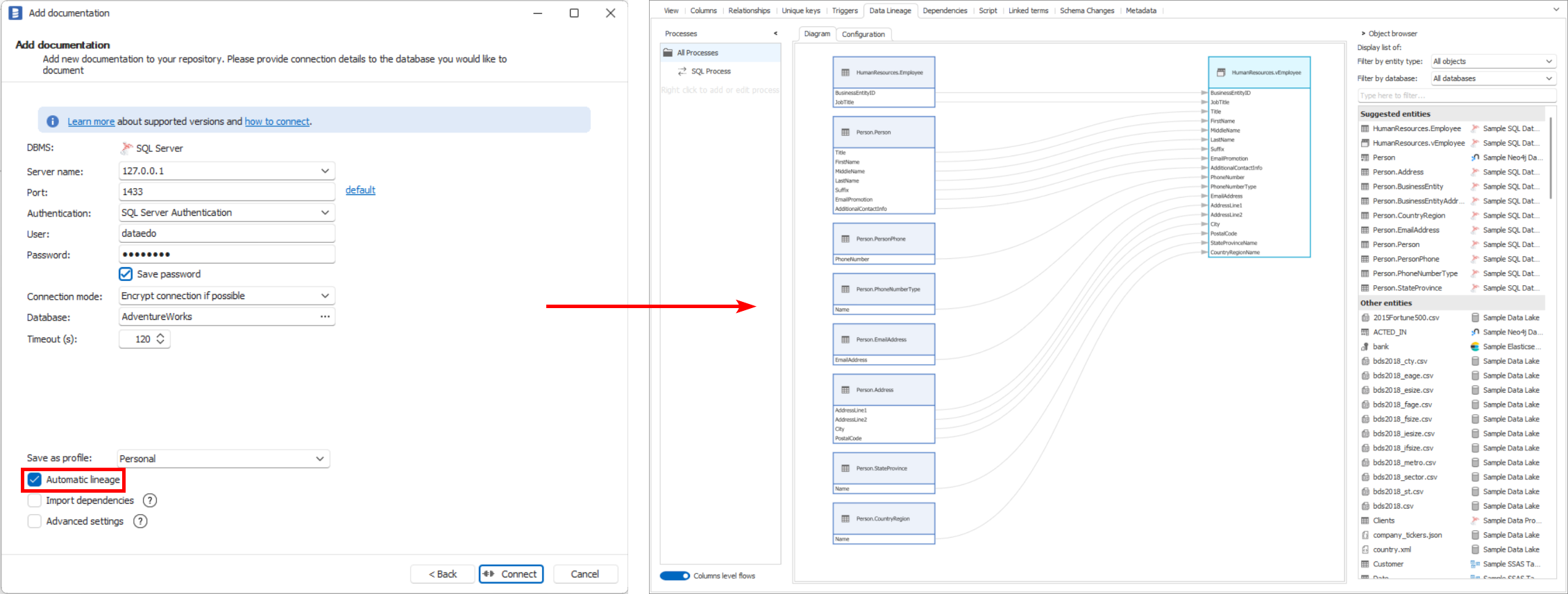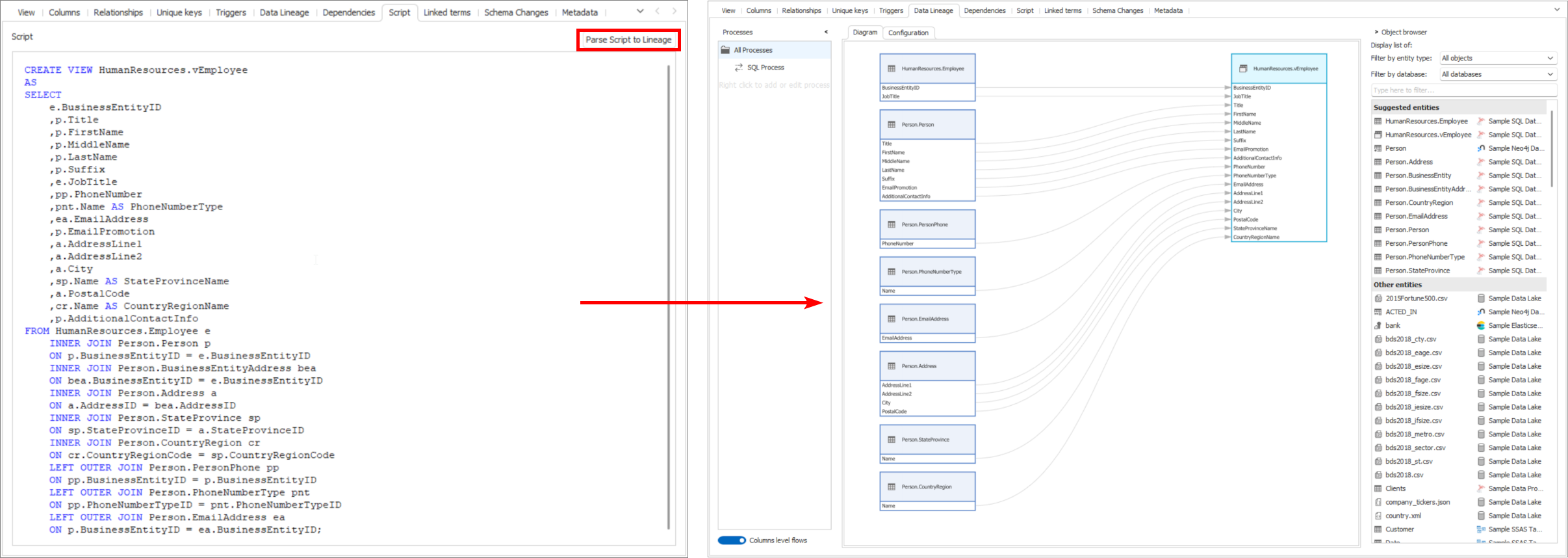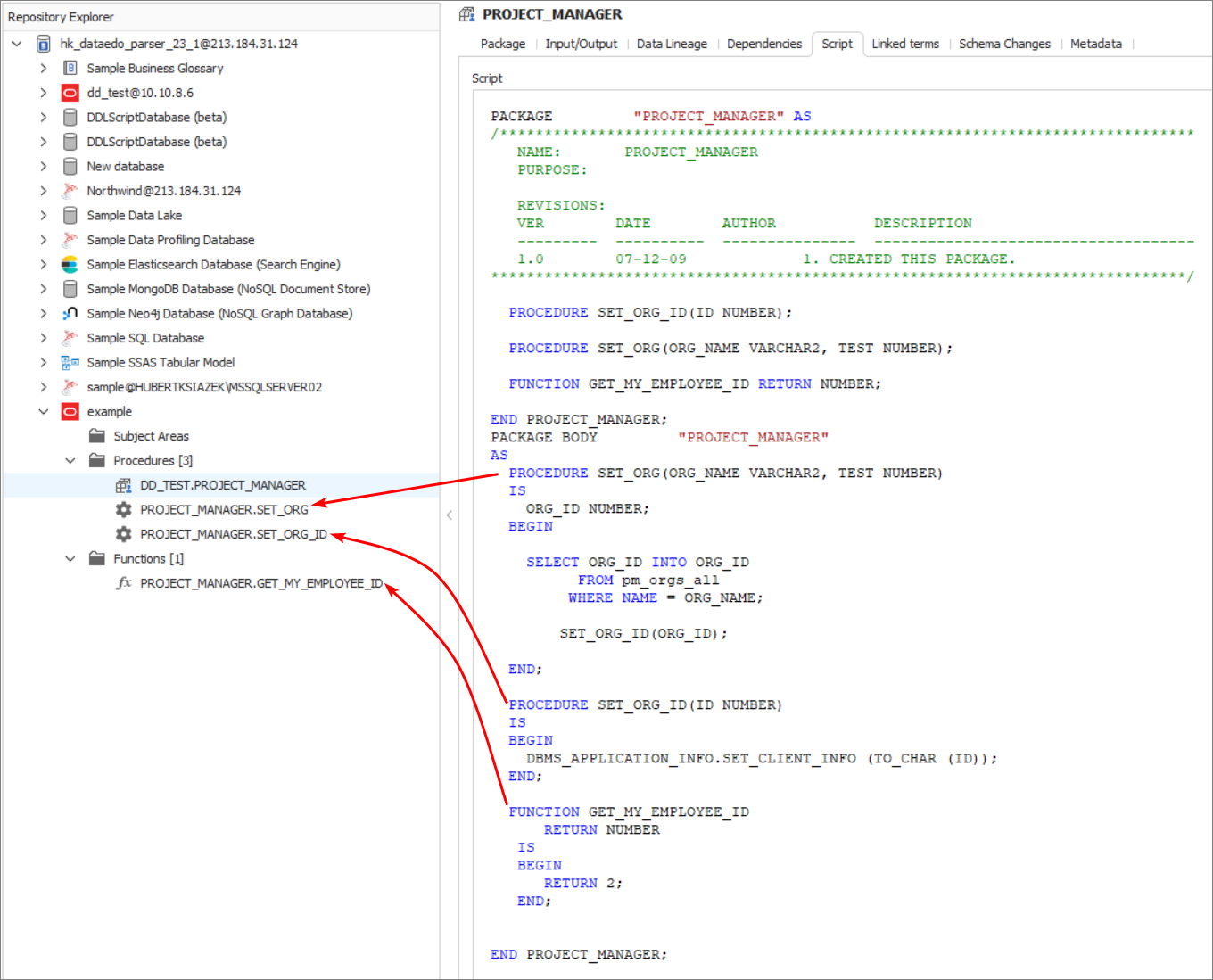In this document, you will be able to see where Dataedo uses an SQL parser that uses the PL/SQL dialect and what its capabilities are.
What is an SQL Parser?
A SQL parser is a tool that reads SQL code and converts it into a format that can be understood and processed by a computer. The parser is an important component of any metadata management system like Dataedo as it allows them to analyze SQL queries and fetch the relevant metadata.
Click to learn more about the other parser features.
Supported engines
Engines that use this dialect:
Automatic column-level lineage from SELECT/CREATE VIEW statements
Dataedo will create column-level data lineage for views and SQL queries based on the script. Just leave the "Automatic lineage" option selected during import.

If you disable the this feature during import, you will still be able to trigger the automated creation of column-level lineage through the "Parse Script to Lineage" functionality, which is located in the Script tab.

This function also works for manually added views that was created using a script, as well as for SQL Query objects.
Supported SQL syntax
We do support the creation of an automatic lineage in all dialects for the following SQL syntax:
SELECTandCREATE VIEWstatements,- Aliases,
- Functions and operators,
- UNIONs,
- JOINs,
- Subqueries and nested queries,
- CASEs and other logic-related expressions,
- Not Recursive Common Table Expressions (CTE).
We do not support the creation of an automatic lineage for the following SQL syntax:
- Statements that access nested data such JSON, XML, or objects as columns
PIVOTandUNPIVOTrelational operators,- Recursive Common Table Expressions (Recursive CTE),
- Dynamic queries,
- Window functions.
Automatic column-level lineage from imported Stored Procedures and User Defined Functions
Dataedo will create column-level data lineage for stored procedures and user defined functions based on the script. Just leave the "Automatic lineage" option selected during import or doing import changes.
Dataedo will divide the procedure into steps and represent them as processes, then create a data lineage for supported steps. Unsupported steps will be named after the first word from the process script and end with three dots.

In the script tab, the processes contain fragments of the procedure script to which they refer.

Supported SQL syntax
We support the creation of an automatic lineage for PL/SQL dialect for the following SQL statements:
INSERT,UPDATE,RETURNING INTOstatements,- Not Recursive Common Table Expressions (CTE,
WITHstatements), CREATE TABLE AS SELECT.
When temporary tables are created in a procedure (ones that do not normally exist in the documented database), Dataedo will try to combine the lineage that goes into them with the lineage that comes out of them, i.e. instead of SOURCE_TABLE -> #TEMP_TABLE -> DESTINATION_TABLE, will represent it as SOURCE_TABLE -> DESTINATION_TABLE.
Regrettably, due to the nature of ANTLR, the presence of unsupported elements within a procedure may result in the entire procedure being unable to be parsed. In the current stage, we treat procedures incorporating elements beyond those explicitly outlined as unsupported. Nevertheless, we do our best to make sure that the unsupported elements do not affect supported steps.
We do not support the creation of an automatic lineage for the following SQL syntax:
DELETEstatements,MERGEstatements,INSERT ... WHEN ...statements,- Syntax mentioned as unsupported in the
SELECT/CREATE VIEWchapter.
Extract information from PL/SQL packages
We use our SQL parser to break PL/SQL packages into individual objects - functions and stored procedures with parameters and scripts.

Online SQL parser
You can testdrive SQL parsing capabilities online, in our SQL parsing/analyzing website.











 Hubert Książek
Hubert Książek